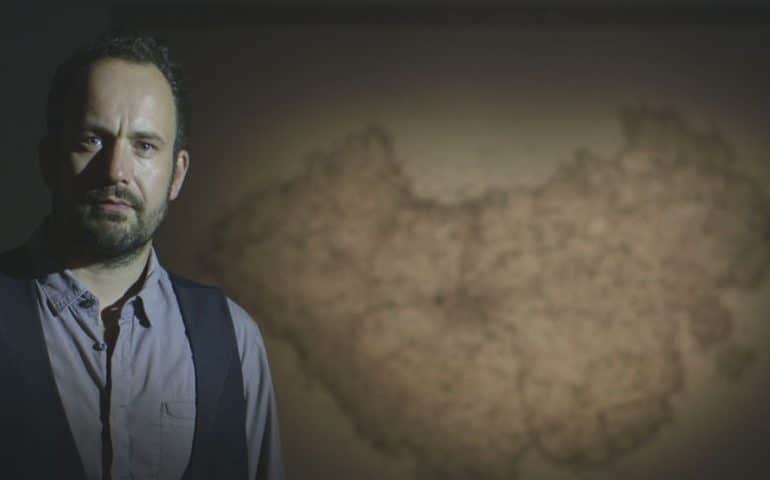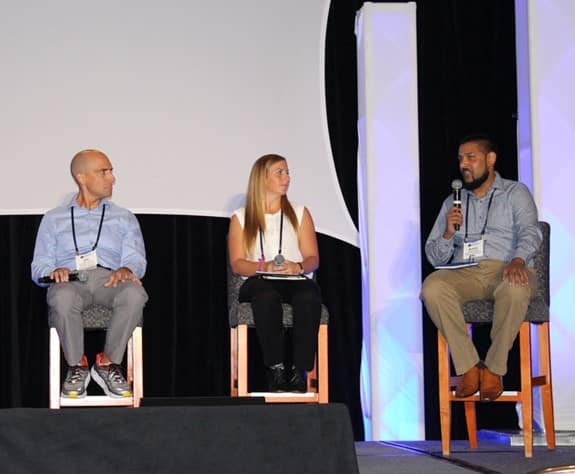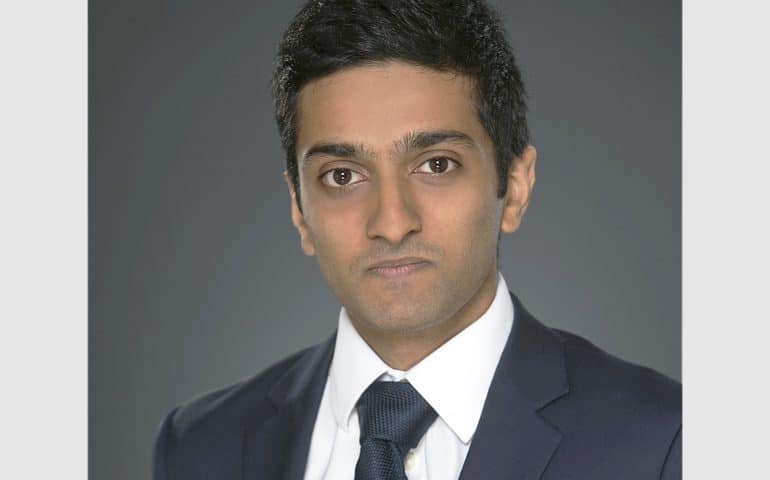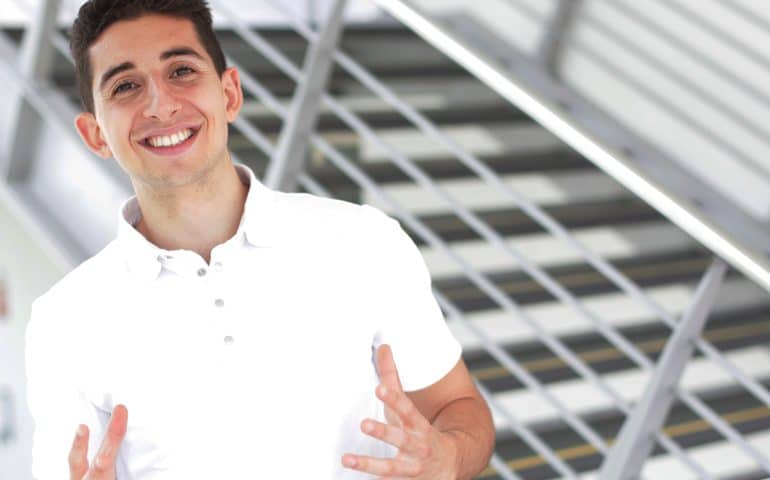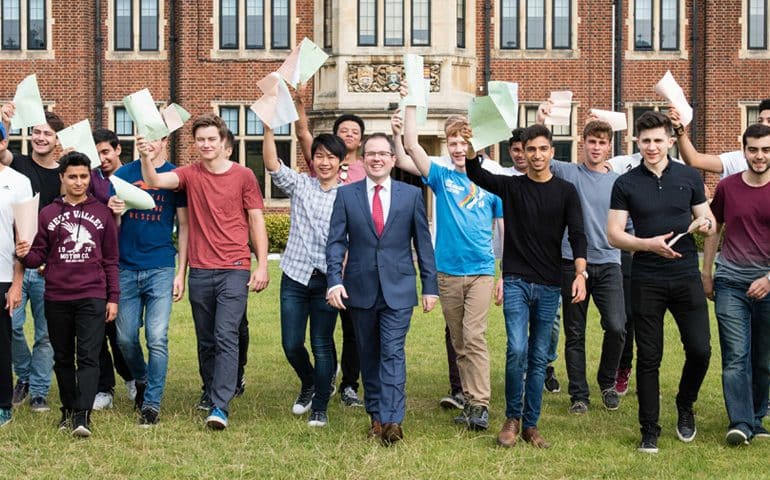
The celebrations surrounding this summer’s outstanding public examination results ensured a very positive start indeed to the new academic year. Our A-level results were the best ever recorded here. The benchmark A*-B figure has now exceeded 98% in four of the past five years, which represents, by any standards, a truly remarkable feat of consistent academic performance at the very highest level.
The strength of those outcomes was recognised by the influential Sunday Times Parent Power guide, which ranked QE as the best boys’ state secondary school. For A-level results alone, QE was rated the best state school in the country, while comparison with the parallel independent schools’ guide revealed that we were beaten only by St Paul’s Girls’ School and are thus the top boys’ school of any stamp, fee-paying or maintained.
In the second half of this term the wealth of extra-curricular opportunities in the performing arts has been especially conspicuous. In addition to a number of enjoyable concerts in School, our young singers performed on a national stage in the BBC Children in Need broadcast. There was external recognition, too, for our actors through the Shakespeare Schools’ Festival. This included The Trial of Hamlet, a fundraising event for the festival at the West End Wyndham’s Theatre. Year 12 boys Nicholas Pirabaharan and Keenan Dieobi were selected for the roles of Hamlet and Claudius and performed scenes of the play as flashbacks, while celebrity comedians Lee Mack, Meera Syal, Hardeep Singh Kohli and Hugh Dennis, as well as leading actors Tom Conti and John Heffernan and some of Britain’s most senior lawyers, all improvised the Prince of Denmark’s trial.
Looking beyond just the performing arts, there have been several notable events in the literary sphere. We were pleased to welcome back to the School Surya Bowyer (OE 2007–2014), who is in his final year at Keble College, Oxford. Surya’s passion for literature was evident as he spoke to all the Year 11 boys, encouraging them to study English at A-level and at university. He also gave his time to conduct mock university interviews for pupils considering an English degree.
One very eagerly awaited visitor was Robert Muchamore, the most borrowed author in The Queen’s Library, whose appearance drew more than 400 boys. Since it opened, the new Library has played an important part in the life of the School. May I extend my thanks to those old boys who have already responded to our recently renewed appeal for books: the shelves are half-full and many alumni have been generous in helping us to ensure they become fully stocked. Our librarian, Ciara Murray, has published 19 ‘wish lists’ on Amazon, including a fiction list, as well as lists from our academic departments. If any further Old Elizabethans would like to donate, I would be most grateful. Please do so through Amazon (so that the wish list automatically updates and we avoid duplicates) by clicking on this link and selecting a volume.
Three of our Year 13 A-level Art students, Nabil Haque, Tochi Onuora and Scott Tan, have won much-coveted places on a Royal Academy of Arts programme – attRAct – which offers a range of assistance as they work towards their future careers.
Such success across the broad spectrum of the arts at QE is certainly not accidental. It bears testimony to the importance we attach to these disciplines, as indeed does our current heavy investment in converting the Heard Building so that it will soon provide a new base for our English department. I am pleased to report that work on this next phase of our Estates Strategy is on schedule, and I reiterate my appreciation for the charitable donations from old boys and other supporters that have made it possible. A notable example of giving in 2016 has been a most generous legacy from Arthur Perks (OE 1935–40), a lifelong supporter of the School, who died earlier this year at the age of 91. Arthur won many awards in athletics at QE and continued this winning streak on leaving, becoming county champion in 1946 with a record-breaking time in the two-mile walk. He wore his old boys’ blazer and tie with pride on special occasions. Arthur had a strong faith and St Mary’s Church, East Barnet, played a major part in his life. He met Reverend Frederick Wood and his three sons, David, Freddie and Bernard; David became his best friend and they were in the same class together at QE. In 1944, Arthur qualified as an RAF navigator and was posted to South Africa and France, where he loved to entertain his fellow airmen by singing and playing the piano. After the war, Arthur returned to London to continue studying to become a solicitor and in 1950 was appointed a member of the Law Society. He joined a respected firm, Braikenridge and Edwards, and rose to become a partner. In retirement, he enjoyed touring holidays on the continent, with his wife, Evelyn, as well as watching sport – he was an Arsenal fan and also relished his trips to the Lord’s test matches. His main passion, however, was music, and he greatly enjoyed visits to the opera at Glyndebourne with his wife, Evelyn. He nursed Evelyn lovingly through a long, difficult illness until she passed away in 2006. Arthur made the best of his own final years and died peacefully, slipping away to the strains of Gilbert & Sullivan.
We have also learned recently about one of Arthur’s near-contemporaries, Peter Dennis Mackie (OE 1935–1938), whose name is listed on our World War II roll of honour. Peter came to QE at the age of 13 from Pocklington School in Yorkshire, and it was an enquiry from a former pupil there, Richard George, which inspired our investigations. A report card from the redoubtable Ernest Jenkins (Headmaster,1930–1961) was duly unearthed; it revealed that Peter was “keen on games” and that his “character, manner & appearance [were] all promising and [he] showed signs of being something of [a] leader”. He left without joining the Sixth Form and little is then known of him until 9th April 1944, when, as Flying Officer (Pilot) Mackie, he died in a training accident, leaving a young widow, Doris, and three-week-old son, Alan.
Finally, I have been pleased to learn of fresh successes for our old boys in a number of fields, as covered in this e-newsletter. I must also congratulate Tom Aggar (OE 1995–2002) on winning a bronze medal in his rowing event at Rio – the third Paralympic Games for the four-times world champion.
May I wish all Old Elizabethans and their families a Merry Christmas and a peaceful and prosperous New Year.
Neil Enright
